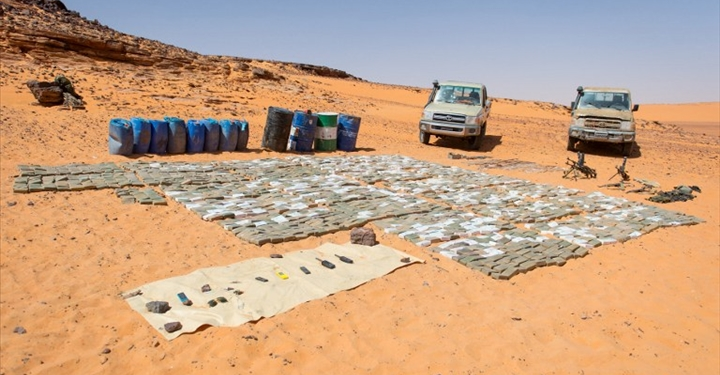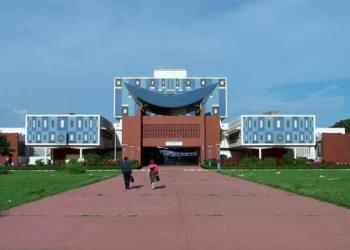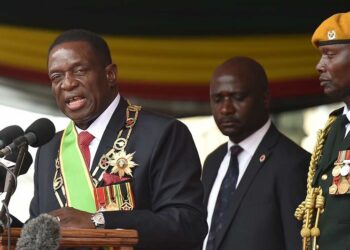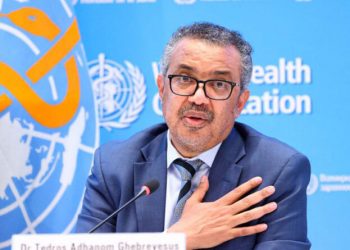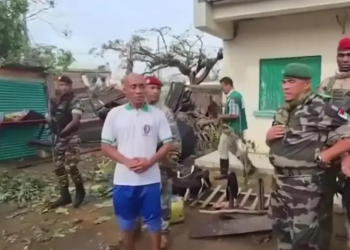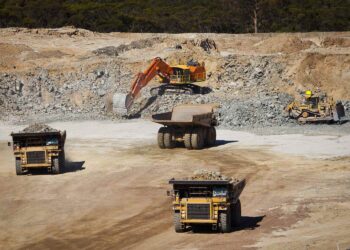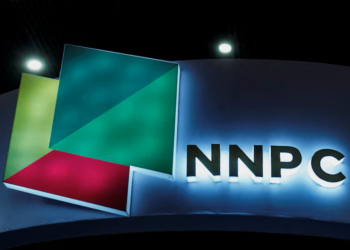The semiarid region of western and north-central Africa extending from Senegal eastward to Sudan is known as the Sahel. Sahel, as noted by renowned geographers, forms a transitional zone between the arid Sahara (desert) to the north and the belt of humid savannas to the south. The Sahel stretches from the Atlantic Ocean eastward through northern Senegal, southern Mauritania, the great bend of the Niger River in Mali, Burkina Faso (formerly Upper Volta), southern Niger, northeastern Nigeria, south-central Chad, and into Sudan. Basically, in history, the Sahelian kingdoms were a series of empires based in the Sahel, which had many similarities. Likewise, the Sahel is home to several people and cultures. The most northerly ethnic group of the Sahel region is the Tuareg, a people of Berber origin, whose Sahelian people live in northern Mali and northern Niger. Further to the west is the Soninke, the ethnic group that founded the Ghana Empire. The modern-day Soninke live near Bakel, on the Senegal River, and in countries neighboring Senegal. Not too far from the Soninke are the Malinke, who founded the Mali Empire. They now live in the Senegalese and Malian parts of the Sahel region. The Songhai, who founded the empire of the same name, live in the southern parts of the Sahel, mainly in western and southern Niger, eastern Burkina Faso, and along the Niger River in Mali.
Since time immemorial, the Sahel region has been primarily agricultural and pastoral, which has been negatively affected by periodic droughts and resultant famines. In recent years, the Sahel has been in the global spotlight due to famines, religious terrorism, anti-state rebellions, arms, drugs, and human trafficking. These developments are the product of both local and global dynamics. With vast stretches of inhospitable desert, the central Sahel is notoriously difficult to control and has become a hunting ground for armed groups, rebels, and jihadists roaming freely between countries. Displaced people are being received in communities already struggling with limited resources. As host communities swell, food and nutrition insecurity is increasing, and access to clean living situations is becoming a significant challenge. Climate shocks, such as devastating floods, continue to devastate livelihoods and communities. But experts say there have been positive developments as well. These include an emerging consolidation of support for democratic transitions of power through popular protests and elite-led regional diplomatic and military interventions against unconstitutional changes of government or attempted unlawful retention of power.
Violence and drug trafficking in the Sahel
In the Sahel, civilians are the primary victims of the violence. The military rulers, united under the coalition named the Alliance of Sahel States (AES), promise to eradicate “terrorists.” Accusations of wrongdoing multiply against the Malian armed forces, supported by mercenaries from the former Russian group Wagner (renamed Africa Corps), allied with the regime. A report says that one of the most serious problems caused by the clashes between these armed groups has been the explosion of intercommunity violence. Longstanding quarrels among ethnic groups—traditionally grain or livestock farmers—have been exploited and exacerbated by the different parties to the conflict. Meanwhile, a report from the United Nations Office on Drugs and Crime (UNODC) has indicated that drug trafficking in the Sahel region, i.e., Burkina Faso, Chad, Mali, Mauritania, and the Niger, continues to hinder security, economic development, and the rule of law while jeopardizing public health.
Cocaine, cannabis resin, and pharmaceutical opioids are the internationally trafficked drugs most seized in the Sahel. In terms of quantity, cannabis herb is actually the most commonly seized drug in the Sahel countries, but it seems to be produced locally and trafficked mostly for local consumption. Cannabis is also the principal substance for which people seek treatment in the region. According to data provided by the UN agency, seizures of cocaine skyrocketed in the Sahel in 2022, from an average of 13 kg per year seized between 2015 and 2020 to 1,466 kg in 2022, suggesting the presence of large-scale cocaine trafficking through the region. Although annual estimates were not available for 2023, 2.3 tons of cocaine had already been seized in Mauritania by June 2023. The region’s geographical location makes it a natural stopover point for the increasing amount of cocaine produced in South America en route to Europe, which has seen a similar rise in demand for the drug. In the context of increasing cocaine production in South America and increasing demand for the drug in Europe, flows of cocaine trafficked through West Africa have intensified. The re-emergence of large cocaine seizures since 2019 suggests a surge in large shipments of the drug to the coastal countries of West Africa, with 9.5 tons being seized in Cabo Verde.
Why is drug trafficking considered an organized crime?
Drug trafficking is a global illicit trade involving the cultivation, manufacture, distribution, and sale of substances that are subject to drug prohibition laws. It is often associated with other forms of crime, such as money laundering or corruption. Trafficking routes are used by criminal networks to transport other illicit products, including firearms, uncut diamonds, and live pangolins, creating a convergence of crime, according to the International Criminal Police Organization (INTERPO). Also, drug trafficking is a major source of revenue for organized crime groups, many of whom are involved in other forms of serious crime such as firearms, modern slavery, and immigration crime. Analysts say that to make their operations successful, drug traffickers use different tactics. They invest in real businesses, get involved in real estate deals, and use financial institutions to move money secretly. Furthermore, they employ intricate networks of shell companies, offshore accounts, and intermediaries to obfuscate the origins of their money, making it challenging for authorities to trace it.
The United Nations Office for West Africa and the Sahel (UNOWAS) has indicated that the continuing scourge of drug trafficking in West Africa and the Sahel and the increasingly sophisticated operations launched by drug cartels is an issue of great concern. The use of the Sahara Desert as a transit route for narcotics, in particular cocaine and cannabis, heightens insecurity in an already volatile region, which mostly remains outside the control of national security and defense forces. UNOWAS, which has the responsibility for preventive diplomacy, good offices, and political mediation and facilitation efforts in West Africa and the Sahel, also noted that terrorist networks and rebel groups could derive significant economic benefit from criminal activities, including drug and arms trafficking. The frequent instances of the kidnapping of foreigners in the Sahel band in exchange for ransom payments are a reflection of this worrying trend. A UN report finds that drug trafficking continues to provide financial resources to armed groups in the region, including Plateforme des mouvements du 14 juin 2014 d’Alger (Plateforme) and Coordination des Mouvements de l’Azawad (CMA) in Mali, enabling them to sustain their involvement in conflict, notably through the purchase of weapons.
Consequently, competition over drug trafficking routes in the Sahel and interceptions of drug convoys by competing armed groups have led to violent clashes and reprisals, resulting in numerous deaths and injuries among those groups, perpetuating the cycle of violence. Corruption and the perception that drug traffickers, including members of armed groups and individuals under sanctions by the United Nations Security Council, carry out their criminal activities with relative impunity undermine the credibility and legitimacy of state institutions as well as electoral processes. Drug trafficking also undermines economic development in the Sahel countries and has a direct and growing impact on people’s health as local drug markets expand. Among multiple factors that impact the security and political situation in the Sahel countries, experts from the United Nations Office on Drugs and Crime (UNODC) say organized crime and drug trafficking undermine the stability and development of the region. As in other conflict-affected areas of the world, the drug economy and instability in the Sahel are linked through a vicious cycle in which weak rule of law facilitates the expansion of the drug economy, which can, in turn, provide financial resources for maintaining or expanding the conflict while undermining the state response. Drug trafficking provides financial resources to armed groups operating in the Sahel, including Plateforme and CMA in Mali, enabling them to sustain their involvement in conflict, in particular through the purchase of weapons.
As noted in the paragraph above, one of the most significant enablers of drug trafficking in the Sahel is corruption, which can include members of the political elite as well as leaders of armed groups and community leaders. Experts stated that recent seizures, arrests, and detentions in the Sahel countries shed light on how drug trafficking is facilitated by a wide range of individuals, such as politicians and members of the security forces and judiciary, including when circumventing controls and avoiding arrest and judicial proceedings. The challenges posed by drug trafficking in the Sahel countries are compounded by the fact that traffickers use the region to launder their criminal proceeds, including through trade-based money laundering. This practice makes financial transactions more difficult to track while creating additional income opportunities, giving traffickers greater economic leverage and a veneer of legitimacy. Drug traffickers tend to invest their illicit proceeds in growing sectors, including gold and real estate, relying on West Africa’s cash-based informal economy. Drug traffickers based in the Sahel countries seem to operate independent, fluid networks held together by ties of kinship, including among Arab, Tuareg, and Tebu communities. While communities in Northern Mali, the Niger, and Chad tend to consider the smuggling of commercial goods and fuel as licit activities, drug trafficking is generally considered illicit and morally reprehensible. That said, the higher commercial value of drugs means that drug trafficking has been used to challenge traditional power structures within and across these communities and led to the emergence of powerful traffickers.
Making a difference
Economic disparities and a lack of employment opportunities in certain regions are among the common causes of drug trafficking. Analysts say illicit activities don’t just benefit organized crime. They also harm communities by causing more violence, addiction, and social instability. Despite the fact that the macroeconomic conditions in the Sahel have been steadier and stronger than the continental average over the past decade, The Sahel is endowed with great potential for renewable energy and sits atop some of the largest aquifers on the continent. It is potentially one of the richest regions in the world, with abundant human, cultural, and natural resources. In the meantime, drug trafficking in the Sahel continues to hinder security, economic development, and the rule of law while jeopardizing public health, according to UNODC.
The menace of drug abuse and trafficking presents a grave danger to the world. There is a nexus between drug trafficking on the one hand and organized crimes such as terrorism, kidnapping, and money laundering on the other. Substance abuse can impair decision-making abilities and lead individuals down a path of illegal activity. It is essential that those struggling with addiction receive proper support and treatment to prevent further harm. Some observers see the path to combating drug trafficking in the world as laced with challenges. This is because drug syndicates are rich, and their operations are well funded and sophisticated. These syndicates can be brutal and go to any length, including bribing, killing, and blackmail, to conduct their illicit transactions. Experts recommended that states in the Sahel region, along with the international community, must take urgent, coordinated, and comprehensive action to dismantle drug trafficking networks and give the people in these countries the future they deserve.
ــــــــــــــــــــــــــــــ
This article expresses the views and opinions of the author and does not necessarily reflect the views of Qiraat Africa and its editors.















































